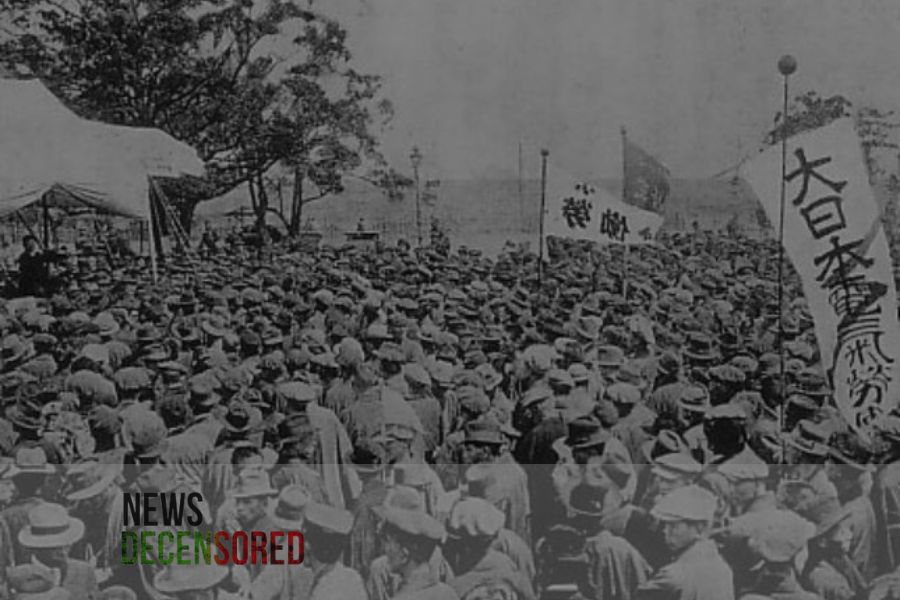Labor Day:
A history of struggle is celebrated worldwide on May 1 of every year. What is the secret behind the consensus of various countries and their cultures that Labor Day should be May 1 and not another day? To whom is the credit given for the first celebration of International Workers’ Day that the world witnessed?
Why is it called Labor Day?
Labor Day is a historical occasion dating back to the nineteenth century in which workers from many countries participated in the struggle for their simple rights to establish humane labor laws and determine working dates and hours. In contrast, the situation was almost enslaved for workers, and today, we all indeed celebrate Labor Day as a holiday of the strong.
Workers of all categories and jobs, except that this holiday began as a special occasion for factory workers who revolted against injustice and inhuman conditions and demonstrated in various parts of the earth to obtain their most basic rights, whether it started from Chicago in America as is expected, or workers in Australia began to do it.
What matters is that Labor Day is a natural name for the production of workers. Years of struggle by the workers of the world to reach the labor organizing laws that we currently work with.
If not for this honorable history of labor struggle, any member of the labor force in any country would now be working without clear rights and maximum working hours.
Why is May 1 Labor Day?
The idea of Labor Day emerged from the womb of centuries-long suffering in which factory workers in America and Europe in the Dark Ages were subjected to the worst treatment from their employers. We would not be exaggerating if we described it as being like paid slavery, but even the wage was not worth all the trouble that the worker had to endure.
The workers’ wages were barely. Then, the price will be enough for them and their families to eat the worst and cheapest types of food.
Every year, International Workers’ Day commemorates the decades-long struggle of the working class that paved the way for us towards a decent life and the humanitarian conditions we enjoy now.
There is disagreement about the true spark of the beginning of the labor struggle that led to dedicating May 1 to celebrating workers and the value of work, as some attribute the reason for choosing one is Labor DayTo October 2, 1884, the day in which the maximum daily working hours were set for the first time at 8 hours, which is the law by which the world works now.
The American National Federation of Trade and Trade Unions met and determined May 1, 1886, as the beginning of work for only 8 hours. This, of course, angered factory owners and employers and was met with intransigence and rejection.
As May 1, 1886, approached, the American labor unions could not organize a general strike to set working hours to 8 hours. Indeed, the workers began a general strike starting on May 1. In May 1886, in all American cities, in addition to the participation of thousands of workers in marches, calling for setting only 8 hours of work without any deduction or deduction from wages.
The American government responded to this labor movement with extreme violence against the striking workers’ demonstrators, arresting some of them and assaulting others until things became more intense on May 4 of the year of the labor uprising.
The American authorities violated the workers’ rights in one of the most famous incidents witnessed in the labor struggle, known as the Haymarket incident. When a hand-made bomb exploded between the crowds of workers and the police trying to break up their gathering, it led to the death of about 12 people, including members of the American police, which responded to this explosion with large arrest campaigns of suspicious workers and those who had no income, and 7 of the workers were sentenced to death.
And solidarity with the Haymarket Incident: Many unions and labor movements in Europe, and the spark went beyond America and ignited the fires of the labor revolution everywhere with crowds of demonstrators.
In 1890, the International Socialist House of Representatives declared during its first conference that May 1 was a global annual event. This was followed in 1904 by a call not to work on May 1 during a meeting of the International Socialist Congress in Amsterdam.
From this attempt, Labor Day was turned into an official holiday in many countries. In 1955, the Catholic Church blessed May 1 as Labor Day.















